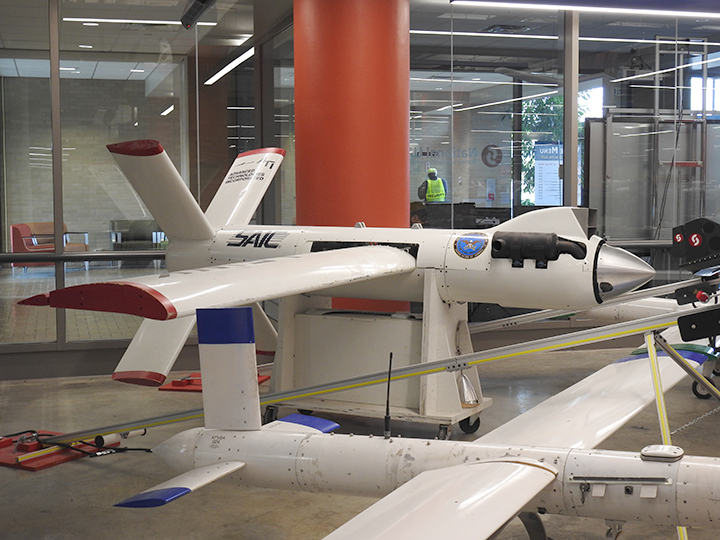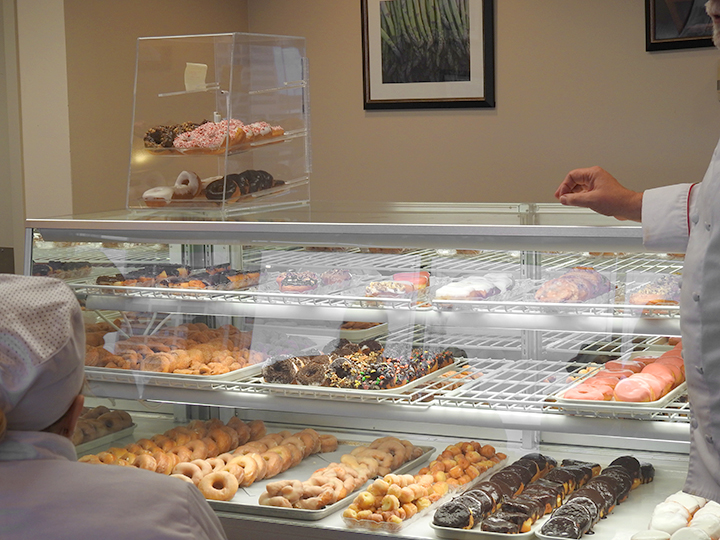Fees are on the rise at Sinclair after the Board of Trustees voted to increase individual course costs and the auxiliary services charge.
The auxiliary services fee, which previously charged $50 per semester and covered parking and lot maintenance, will be increased by $35 and brings the total charge to $85 per semester.
Adam Murka, the Director of Public Relations for Sinclair, said that the revenue from the auxiliary fee increase will go into looking for more parking and also maintenance.
The Board of Trustees reviews all course and lab fees every four to five years. The evaluation of these courses and labs has been going on since April of 2016.
Governor John Kasich’s current budget proposal would not allow an increase in these fees, but Chancellor John Carey of the Ohio Department of Higher Education as well as an external legal review, agreed that Sinclair had the authority to issue the increases.
At this point, Kasich’s budget proposal will not be voted on until June and several changes could happen to the budget before it is passed through.
 Some courses that have individual course fee are labs and clinicals. Those would be increased along with courses that have high cost software and equipment, any courses that have specialized tutoring or supplemental instruction or courses that have special training arrangements such as the Criminal Justice Police Academy.
Some courses that have individual course fee are labs and clinicals. Those would be increased along with courses that have high cost software and equipment, any courses that have specialized tutoring or supplemental instruction or courses that have special training arrangements such as the Criminal Justice Police Academy.
Out of the 1565 courses at Sinclair, 690 of them have individual course fees. 156 courses will have their fees eliminated. The courses with fees that are less than $15 will be eliminated.
Murka said that this was a decision that they did not take lightly, however, it was something that they knew they needed to do.
“We take any decision to increase the amount that a student has to pay extremely seriously. We know that some of our students have real financial concerns so we don’t take lightly any decision to increase the amount they have to pay. However, everything that we do has a cost.”
The revenue, according to Murka, will go towards better diagnostics for developmental math and improving parking.
Select math courses will be attached with an $18 fee which will help “defray new spending on additional tutorial and other intervention services intended to improve student success and completion in math.”
According to studies that have been done by Sinclair, the average cost for students is $811 per year.
Dana Kennedy, a Multimedia Journalism student said that the increase may be a necessary adjustment to make.
“If they are working to make improvements then I think raising some fees are necessary… In the bigger picture, a few extra hundred dollars won’t matter as much, there will still be financial aid, scholarships and grants that students can work for,” she said.
Another student also noted that for many Sinclair students, financial aid prevents them from paying out of pocket. She said that many students might not be affected by the changes that will take place. She also stated that Sinclair already has low tuition and she feels as though her degree price has already been cut in half.
However, for Leslie Harvey, a Nursing student at Sinclair who pays out of pocket, she says the increase will put a strain on her financial resources.
“I pay out of pocket, so that’s not something I would want to hear right now. I think raising costs puts a strain on people like me who work and don’t necessarily need financial aid, but it puts a strain on us financially and then increasing the cost when you don’t use financial aid is more straining and difficult. So, it kind of puts me on a tighter budget once again,” Harvey said.
Murka said that he can understand why some students wouldn’t be happy about paying more, but he encourages people to look at the value of their education.
“I can understand where some students will not be happy about having to pay more. I completely understand and respect that,” Murka said. “I encourage them not to think about direct cost in this context, I would encourage them to think about value. Anything that has a value, has a cost. That’s how life works. You’re still getting a great value, that’s unchanged. The opportunity that you have here, that is unchanged.”
The rise in the auxiliary charge is expected to bring in a little over $1 million and the course fees are expected to bring in $400,000. The increases will take effect immediately for the Summer semester.
Laina Yost
Managing Editor


